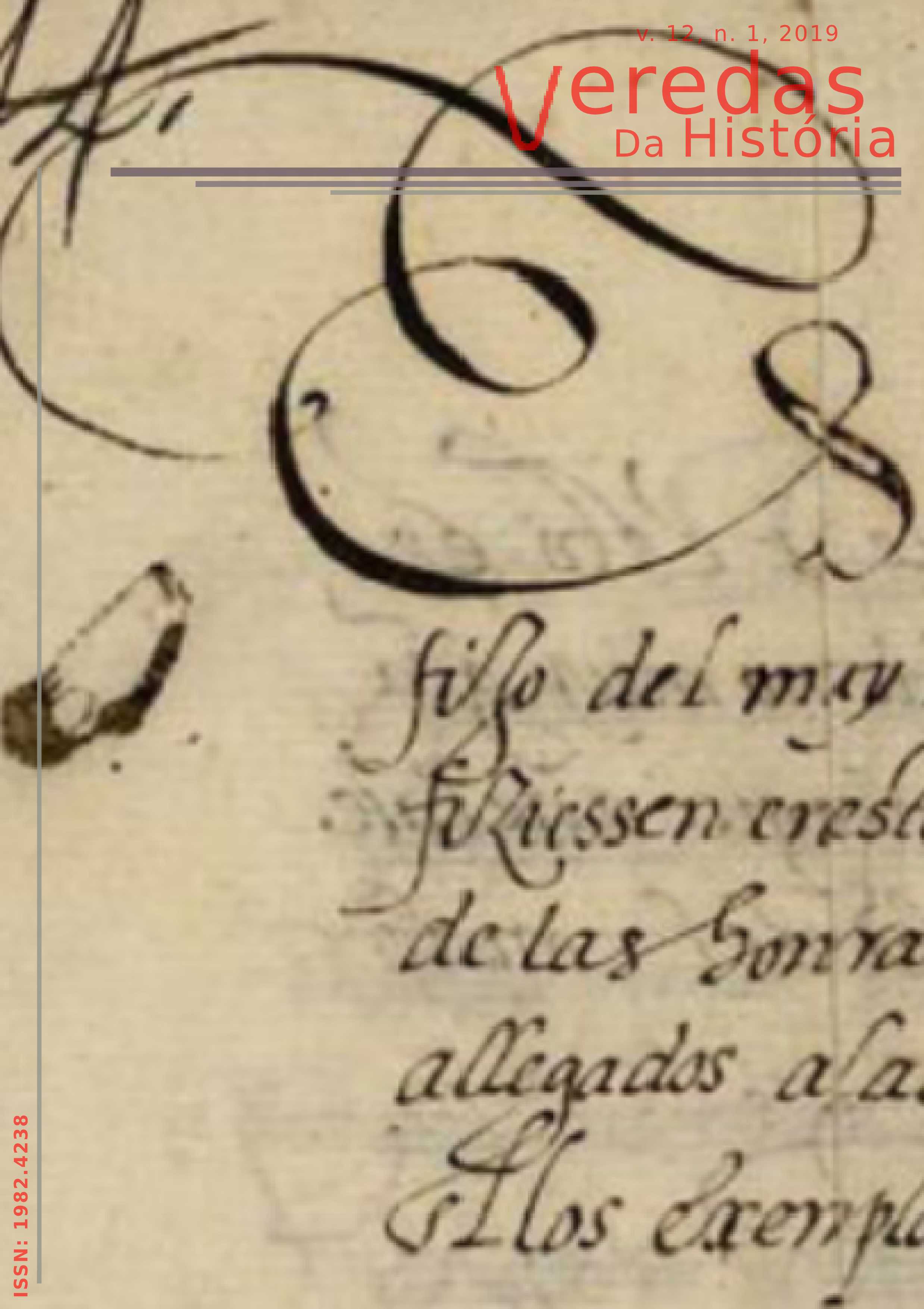O prefácio de “Ab urbe condita” de Tito Lívio e a tradição historiográfica grega
DOI:
https://doi.org/10.9771/rvh.v12i1.47853Palavras-chave:
Historiografia Antiga, Tito Lívio, Intertextualidade AgonísticaResumo
O texto aborda o prefácio de Ab Urbe Condita por Tito Lívio, como forma de diálogo e emulação com a tradição da historiografia grega. O prefácio enquanto peça introdutória da historiografia antiga segue uma estrutura característica que estabelece o escopo e a ênfase da obra de acordo com diferentes critérios históricos. Tito Lívio dialoga com esta tradição ao mesmo tempo em que inova ao oferecer uma dimensão própria da sua obra na sua intertextualidade agonística com a tradição precedente.
Downloads
Referências
ASSMANN, Jan. Das kulterelle Gedächtnis: Schrift, Erinnnerung und politische Identität in frühen Hochkulturen. München: Beck, 1992.
BERTELLI, Lucio. Hecataeus: from Genealogy to historiography. In: LURAGHI, Nino (Org.). The Historian’s Craft in the Age of Herodotus. Oxford: Oxford University Press, 2001, p. 57–94.
BURTON, Paul J. Livy’s Preface and its Historical Context. Scholia, v. 17, p. 70–91, 2008.
CONDILO, Camila. Agonistic intertextuality: Herodotus’ engagement with Hecataeus on genealogies. JAH, v. 5, n. 2, p. 228–279, 2017.
DEWALD, C. I didn’t give my own genealogy: Herodotus and the authorial personal. In: BAKKER, E. J.; JONG, J. F.; WEES, H. (Orgs.). Brill’s Companion to Herodotus. Leiden: Brill, 2002.
GUTERRES, Tiago. Heródoto de Halicarnasso autoria e escrita da história. Curitiba: Prismas, 2017.
HARTOG, François. L’oeil de l’historien et la voix de l’histoire. Communications, v. 43, p. 55–69, 1986.
KOIKE, K. Hecateu de Mileto e a Formação do Pensamento Histórico Grego. Universidade de Coimbra, Coimbra, 2013.
MARINCOLA, John. Authority and Tradition in Ancient Historiography. Cambridge: Cambridge University Press, 1997.
MOLES, John. Livy’s Preface. Proceedings of the Cambridge Philological Society, v. 39, p. 141–168, 1994.
MOMIGLIANO, Arnaldo. History between medicine and rhetoric. Annali della Scuola Normale Superiore di Pisa. Classe di Lettere e Filosofia, v. 15, n. 3, p. 767–780, 1985. (III).
NICOLAI, Roberto. The Place of History in the Ancient World. In: MARINCOLA, John (Org.). A companion to Greek and Roman historiography. Malden: Blackwell, 2007, p. 13–26.
OGILVIE, R. M. A Commentary on Livy Books 1-5. Oxford: Clarendon Press, 1965.
PIRES, Francisco M. Mithistória. São Paulo: Humanitas/USP, 1999.
PORCIANI, Leone. La Forma Proemiale: Storiografia e Pubblico Nel Mondo Antico. Pisa: Scuola Normale Superiore, 1997.
SOARES, Nair Castro. A história opus oratorium e “espertador do entendimento". In: SOARES, N. C.; MIRANDA, M.; URBANO, C. M. (Orgs.). Homo eloquens, homo politicus. A retórica e a construção da cidade na Idade Média e no Renascimento. Coimbra: Classica Digitalia, 2011, p. 117–152.
SOARES, Nair Castro. Humanismo e História: ars scribendi e valor do paradigma. Mathesis, n. 1, p. 153–169, 1992.
WALSH, P. G. Livy’s Preface and the Distortion of History. The American Journal of Philology, v. 76, n. 4, p. 369–383, 1955.
WOODMAN, A. J. Rhetoric in Classical Historiography: Four Studies. London: Routledge, 1988.
Livy: Books I and II. Trad. B. O. FOSTER. Cambridge: Harvard University Press, 1919.
The History of Rome, Livy Books 1-5. Trad. Valerie M. WARRIOR. Indianapolis: Hackett Publishing Company, 2006.
Tito Lívio. História de Roma desde a fundação da cidade. Livro I - A Monarquia. Trad. Mônica Costa VITORINO. Belo Horizonte: Crisálida, 2008.






